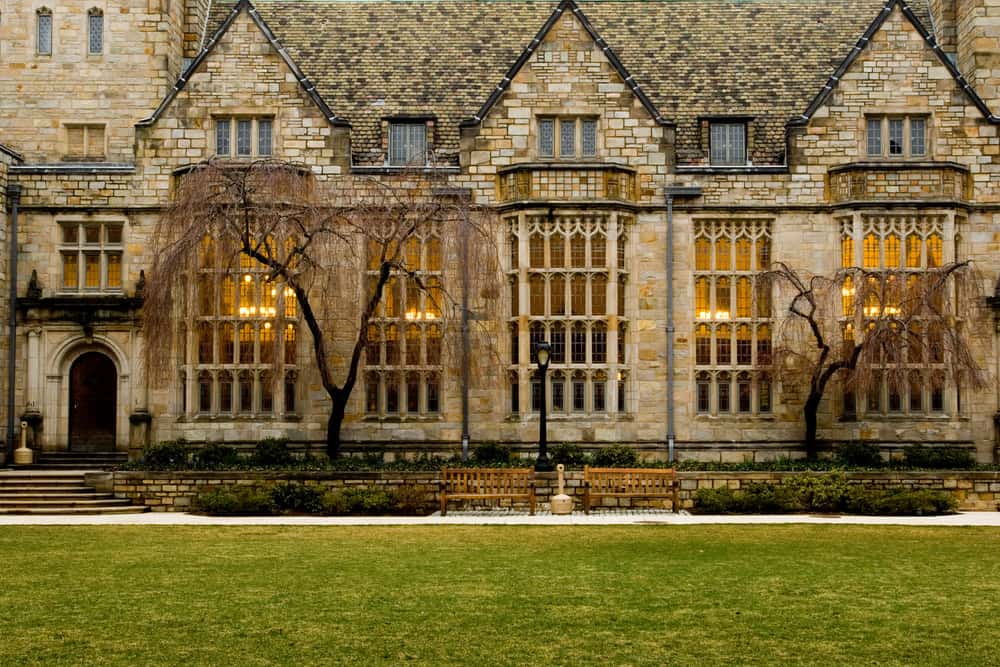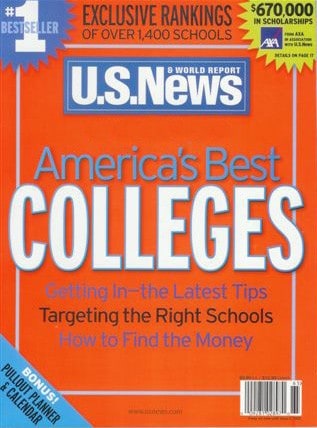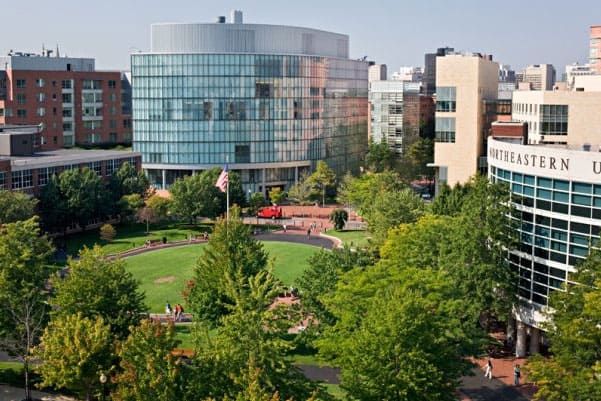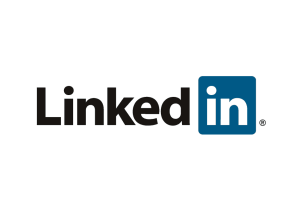
I wrote this post last year, but wanted to share it again because the messages are equally relevant today! Lynn O’Shaughnessy
Plenty of parents, who enroll in my online course – The College Cost Lab – are affluent and highly educated.
Quite a few of these moms and dads would like to see their children attend elite schools.
Not surprisingly, these parents express concern about the cost of these highly prestigious schools. For those who don’t qualify for financial aid, some of these institutions are charging $280,000 for a SINGLE bachelor’s degree. And for parents with two or more children, the costs are beyond staggering – even for those with comfortable six-figure incomes.
One of the things these parents are learning is this: the schools with the very shiniest brand names don’t  have to bother giving merit scholarships to highly accomplished students from high-income families.
have to bother giving merit scholarships to highly accomplished students from high-income families.
Why? Because there are plenty of wealthy parents who will pay ANY amount to get their children into one of U.S. News & World Report’s darlings. A school like Harvard or Stanford could charge $1 million or $2 million for a bachelor’s degree and they’d still reject many teenagers.
Once this reality sinks in, these parents sometimes begin wondering if they should plunder their retirements accounts and/or take on debt to underwrite a degree at one of these elite schools that seem (notice the emphasis on seem) to have a monopoly on dispensing golden tickets.
Yale vs. Northeastern University
I got an email last week from a mom struggling with this very issue. Her son got into Yale with barely any financial aid and also got a full-tuition scholarship to Northeastern University. The parents, who are in their 60s, would have to borrow six-figures to make Yale financially possible.
also got a full-tuition scholarship to Northeastern University. The parents, who are in their 60s, would have to borrow six-figures to make Yale financially possible.
To me this is an absolute no-brainer decision. Here was my advice, “Go to Northeastern!!!!”
This case also illustrates something else that’s common – a high-income teenager who gets nothing from an Ivy League school can routinely snag big, fat merit scholarships from countless other schools.
I’ve heard from so many moms and dads focused on underwriting an elite-school education through my course, in my talks and through my blog, that I felt compelled to write a post pointing out some key things these parents need to know.
You don’t have to go to an elite school to succeed!
This seems incredibly obvious to me, but it isn’t to many parents in wealthy communities that seem to view  getting into prestigious colleges as some kind of trophy sport. For some parents, it becomes an obsession while their kids are still in diapers.
getting into prestigious colleges as some kind of trophy sport. For some parents, it becomes an obsession while their kids are still in diapers.
A Princeton admission rep once told someone I know that parents with preschoolers ask her what private schools their children should attend to boost their ultimate chances of a Princeton admission. Wow!
Even if I was to concede (and I’m definitely not!) that all the best jobs in the entire country go exclusively to the graduates of the most highly ranked colleges and universities, that would leave about 99.5% of jobs left to the rest of us.
LinkedIn Reality Check
If you don’t believe me, take a few minutes some day and look at your LinkedIn contacts. I bet most, if not all, of  the most successful contacts you have did not attend a trophy school!
the most successful contacts you have did not attend a trophy school!
I made the LinkedIn suggestion recently when I was giving a talk at a financial conference in Las Vegas that attracted some extremely successful, fee-only financial advisors from across the country. When someone asked about the elite school advantage (he assumed there was one), I reacted by instructing anyone who had attended an Ivy League school to raise his/her hand. No one in the room did.
There have been some excellent and highly touted studies on whether an Ivy League bachelor’s degree conveys a professional advantage for students. The main conclusion of these papers was this: students who attend Ivy League institutions and equally bright students who apply but get rejected from Ivy League schools end up making the same amount of money in their careers. These are bright and motivated students, after all, who can succeed wherever they go to school.
There was an exception to the research finding. Minority and first-generation students who don’t enjoy the same advantages as the students whom the Ivy League schools specialize in educating – wealthy students – did gain an advantage from attending these schools.
This Should Make You Feel Better
What should make parents feel better is this conclusion from Alan Krueger, the famous Princeton economist and coauthor of the studies:
He pointed out that the average SAT score at the most selective college that students apply to is a better predictor of their future earnings than the average SAT score at the college they attended. Read that again and let that sink in!
Here are excellent summaries from The New York Times and the Brookings Institute on what the famous Ivy League studies uncovered:
Revisiting the Value of Elite Colleges
Who Needs Harvard?
It’s What You Do in College That Counts!
A Gallup survey conducted with Purdue University last year provided further evid ence that people should really stop fixating on the elite schools.
ence that people should really stop fixating on the elite schools.
The survey results indicated that the type of institution that college graduates attend matters less to their future happiness at home and work than the experiences they have at whatever college that they end up at. In fact, the survey concluded that whether respondents attended an elite school, a public flagship, a private college or a regional state school didn’t matter at all.
I wrote the following blog post about this survey and used my daughter Caitlin (see photo), a Juniata College graduate, to illustrate how you can be incredibly successful at a college that most people have never heard of:
How My Daughter Made the Most Out of College
Striving for elite schools can cripple teenagers mentally
Finally, I’ve left the most important factor in the college-admission rat race for last. What mental-health price are teenagers paying who are aiming for these elite schools?
I had a mom in my class wonder last week if the burnout her daughter, a junior, is experiencing is normal. The girl is taking four AP classes and a honors class on top of all her extracurricular activities. The mom is worried how her daughter is going to do when she’ll face this crushing load while visiting colleges, applying to schools and taking her standardized tests.
I encounter this issue a lot when I talk at schools in high-income areas with ambitious parents. What I tell them is that their children do not have to be super human. There are many schools that would love high-achieving students whether they take four AP classes a semester or two or one and will reward them with merit scholarships.
I see a lot of panic at these schools where parents worry that other students are pulling ahead academically so they pile on more AP classes. At the high school where my husband attended, the premiere public school in Denver, some students are starting Calculus as freshmen to try to gain an edge. It’s nuts!
This academic escalation can have tragic consequences.
I’ll be giving a talk at Gunn High School in Palo Alto this spring (I’ve given several talks at Silicon Valley high schools) that has experienced eight student suicides in roughly the past five years. Here is a YouTube video from a girl who talked about a student suicide in November and there has been another suicide since then.
http://youtu.be/9LLnY_JBAAg
I would highly urge parents of teenagers attending these pressure-cooker high schools to read a wonderful book written by Madeline Levine entitled, The Price of Privilege: How Parental Pressure and Material Advantage Are Creating a Generation of Disconnected and Unhappy Kids.
Here is a guest post from my blog recently that synthesizes Levine’s message that is definitely worth reading:
Why Affluent Teens Are Miserable
Bottom Line:
There are amazing colleges and universities in this country, many of which are under the radar, that offer excellent opportunities for their students.
It’s important to know that nationally around 75% of students get into their first-choice school. At most colleges and universities, it’s actually a buyer’s market not a seller’s market. Students have many, many choices if they are savvy enough to not just look at the same old two or three dozens schools that smart, high-income students tend to focus on.

One caveat: you need to read the fine print on merit awards. Often, like teaser interest rates on credit cards, they are limited to the first year. If the grant does not clearly specify that it will be automatically renewed or the exact terms under which it will be conditionally renewed, expect it to disappear after freshman year. They hook you in so they can report your high GPA and SAT scores as part of freshman cohort and then after that…they know you prob won’t walk especially since they won’t tell you the gravy was not renewed until after transfer deadlines.
Pingback: Name Brand-itis, and What Everyone Should Know About College Rankings – College Search Simplified
Does going to an elite Ivy League school for an undergraduate degree really make that much of a difference? Enough so to justify the cost? If so, in what way? In my experience, the only way these schools really matter much is if you get graduate or professional degrees from them, and even then it depends on what you want to with them. A guy I went to high school with got an undergrad degree in philosophy from the “prestigious” Harvard. He waited tables and temped in various office jobs after graduation before getting master’s degree from a state school. He went back to working in a low level office job. I went to state school and got a Ph.D. in engineering and after several years as a consulting engineer at a top firm, I make well into the 6 figures range. Going to an elite school doesn’t guarantee success, and before you say it matters for getting into a top grad/professional degree program, I know plenty of people who got undergrad degrees from state school who got MBA’s, JD’s and Ph.D.’s from Ivy League and other private schools like MIT and Stanford, myself included (turned it down for personal reasons, hasn’t stopped me from succeeding in my career). Take my advice, unless you get a full ride to one of the expensive private schools, don’t waste your money getting an undergrad degree from one of them.
It’s unbelievable that costs have gotten so out of control … it’s as if nobody but the rich can avoid crippling debt these days!
What you say may be valid, but an example of two people does not prove anything. Here is my experience; I went to an elite private boarding school in New Jersey in the mid-70s. About 30% of my class went to highly prestigious schools (Ivy’s, MIT, Stanford, Williams, Amherst, Duke, Georgetown, etc.) for their undergraduate degrees. Out of a class of 200, nine went to Harvard. Almost without exception, this group of students has had, by any standard, remarkably successful and lucrative careers in medicine, law, and business. At the law school I attended, an astonishing high number of the faculty had a degree from Harvard. Does attending one of this elite school’s guarantee future success? Maybe not, but it certainly helps opens doors, especial in certain circle like Wall Street, Hollywood, powerhouse law firms, and elite academia. People who go to a regional or state school certainly can be just as successful as those who went to an Ivy, Stanford or Duke, but they are likely going to have to shine a little brighter, network a little harder, to get through some of these doors. This is especially true in the early stages of their careers. That said, I agree with the points the author makes and am trying to convince my own daughter, who is senior, with a 3.98 UWGPA and 1550 SATs to go to our State University, saving the money for her post graduate education.
Lynn
The video is indeed heartfelt as is the Atlantic article on the subject (http://www.theatlantic.com/magazine/archive/2015/12/the-silicon-valley-suicides/413140/).
Here’s why I have a hard time being sympathetic:
1) The average home price in Palo Alto CA is 2.5 mil (that’s for a 3+2 ranch)
2) This explains why Stanford pulls 20 students a year out of Gunn: parents can pay full freight – which you spent the top half of the article railing against. (This incestuous relationship that Expensive Public Universities have with some pet high schools deserves an article all to its own).
3)the Atlantic article highlighted a controversy following the suicide clusters. The school board wanted to remove an early start period to reduce stress on students who might not be getting enough sleep. It was noted at the Board meeting that ‘ 89.5 percent of all student respondents did not want the option of zero period removed, and that 90.8 percent of students currently enrolled in zero period did not want it to end’. Said one student:” “Stop telling us that our age makes our voices irrelevant,” she said. “It makes us feel more powerless and alone.”
4) Taking more than four AP courses is not that stressful. My kid was a National AP Scholar – on top of duel enrollment in multivariate calculus and was on the debate team and had a disability. Perfectly well adjusted. Didn’t get into any elitist school though – but only because we had an EFC near zero.
your website actually does a great job pointing out that so much of what is wrong in the country emerges in the college game.
Dave, sounds like you have a very well adjusted child. However, any counselor will tell you that a student taking 4 AP courses is very stressful. Maybe not for your child, but for many smart kids, that is a little much. As for the parents of the Gunn school, because he value of a home is high doesn’t mean the equity is equivalent. im guessing many have million dollar mortgages. Lastly, you stated that your EFC was near zero. Based upon most of the elite schools, they are “need blind”, therefore, I found your comment confusing as to why your child did not get into elite schools.
It is strange that need blind schools seem to wind up with a fairly stable ratio of scholarship students. I suspect that one of the reason they have cozy relationships w privates is that they are a steady stream of full-pay parents. I would not be surprised if there are back channel conversations between private school ex-missions folks and development/Dean’s Offices. Also even within the pool of private school kids distinctions are effortless, if I have two candidates from private one is the child of a contributing alum the other the child of two state school parents, I already know he alum kid is likely full freight by dint of his parents status as donors…So, this is, in effect, no longer a need bling admission. That said, if you look at schools that offer no preference to legacies you will see how hard it is to raise money without it.